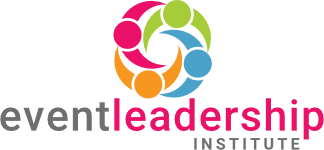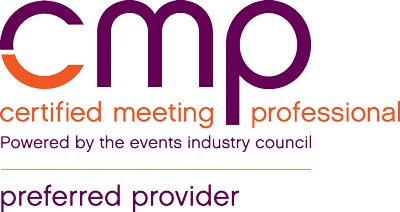
Advanced Event Design & Strategy Certificate
COURSE OVERVIEW
This advanced certificate course is designed to equip experienced event and meeting managers with the tools, resources, and business savvy to serve as a strategic advisor in designing, planning, and executing programs. Expanding on foundational and fundamental skills in event and meeting planning for in-person events, learners will explore progressive approaches to apply program strategy development, market analysis, budgeting, ROI measurement and analytics, content and engagement design, marketing, elements of project management, and stakeholder management techniques for any event, whether in-person, virtual or hybrid.
Who is this course for?
We designed this course for experienced event and meeting professionals looking to elevate their program design, strategy, and stakeholder management skills in planning and executing multi-channel events, especially with the growing rise of varying event types and levels of complexity. At the end of this course, each learner will have developed a complete, end-to-end or full-cycle event/meeting strategy.
Are there any pre-requisites?
To be successful in this course, we recommend that learners have mastered the foundations and fundamentals of planning in-person and virtual events and meetings. Prior completion of ELI’s Event & Meeting Management Fundamentals (EMMF) or Virtual Event & Meeting Management (VEMM) is recommended, however not required. Alternatively, prior knowledge of in-person, virtual, and multi-channel (hybrid) event concepts, terms, and strategies is recommended.
LEARNING OUTCOMES
- Develop an ROI-focused strategic plan using comprehensive industry, market, and other analysis to design in-person, virtual, and multi-channel (hybrid) programs/events.
- Prepare hybrid event budgets accurately and realistically, with financial performance monitoring and controls.
- Establish ROI measurement criteria and actively monitor and report event performance metrics.
- Explore adult learning methodologies to design event content and engagement in multi-channel environments.
- Design and deliver content and engagement experiences aligned to the event’s strategy, goals, and objectives.
- Create a marketing strategy with clear audience personas, value propositions, and differentiation for each event channel segment.
- Manage and communicate with internal and external stakeholders to use influencing strategies, gain buy-in and manage expectations.
- Develop a business-focused end-to-end event strategy, elements of which can be used across any event regardless of type or complexity.
Important Note | ADDITIONAL COURSE RESOURCES
During the course, you will become a part of a peer-based community forum to exchange ideas, network, and engage with other members of the learning cohort.
Grading & Assessment
- 25% – Forum posts (completed and quality)
- 25% – Quizzes (80% pass required for each quiz with a maximum of three attempts)
- 50% – Online Final Exam (with a minimum passing score of 75%)
- Minimum course passing grade: 75%
 Event Leadership Institute has been approved by the Events Industry Council (EIC) as a Preferred Provider of continuing education on all professional development certificate courses, which qualifies for CMP continuing education credit. Determination of continuing education credit eligibility or Preferred Provider status does not imply EIC’s endorsement or assessment of education quality.
Event Leadership Institute has been approved by the Events Industry Council (EIC) as a Preferred Provider of continuing education on all professional development certificate courses, which qualifies for CMP continuing education credit. Determination of continuing education credit eligibility or Preferred Provider status does not imply EIC’s endorsement or assessment of education quality.
Group Purchase

Learn From An Industry Expert
Tammy Kockaya, CMP, CMM, is the Chief Strategy & Growth Officer with the Event Leadership Institute, the premier education and professional development provider for event professionals. She has been a leader in the events industry for 20+ years as an in-house corporate event professional, from her start as a meeting planner with CEB (now Gartner) to leading a 20+ team of meeting and event professionals with KPMG LLP. Before the events industry, Tammy worked in higher education as student affairs professional with the University of Maryland College Park. As a result, she has a depth of experience driving complex projects and strategic initiatives, developing relationships with stakeholders and vendors, and developing talent.
Tammy joined the Event Leadership Institute in January 2021 as a freelance consultant executing on projects and initiatives, developing strategic partnerships, and building the business development function. In addition, she hosts and moderates panel discussions for the monthly webinars and has been engaged in developing new curricula and educational offerings for ELI.
View Tammy's ProfileWEEK 1 | Establishing & Developing Your Purpose, Goals, Objectives & Vision
Strategy Development & Analysis Tools
- Defining the purpose and elements of a strategic plan
- Identifying the various components that inform a multi-faceted event strategy
- Using industry, market, competitive, external and internal situational analysis tools, data, and resources
- Conduct market research to assess needs, competitive advantages, and market risks that may impact event success
- Clearly defining your customers, audience, and related segments
- Evaluating financial, operations, technology, and human resource feasibility
- Using analysis to identify event program needs
- Utilizing strategic development and analysis tools according to the event type; in-person, virtual, and hybrid
Establishing A Measurable Vision
- Establishing the event’s direction through vision, mission, and objectives
- Developing and communicating a strategic vision to use as a guide throughout the event lifecycle and that drives results
- Determining the event’s objectives and establishing measurable goals
- Examining the relationship between the organization’s strategy with the event’s goals and objectives
- Developing micro-visions and goals for each multi-channel event segment independently as needed
- Aligning goals between multi-channel event segments to the event’s overall objectives and vision
Multi-channel (Hybrid) Event Concepts
- Defining and differentiating in-person, virtual, and multi-channel events
- Understanding the general benefits and challenges of multi-channel events
WEEK 2 | Financial Understanding & Budget Management
Budget Strategy
- Explore differences in a hybrid event budget compared to a single-channel event
- Establish financial performance monitoring and controls
- Prepare realistic financial projections detailing performance expectations in revenue, expenditures, cash flow, and net margins
- Identify typical costs and budget line items required for virtual and hybrid events, including the virtual platform, staffing, audio-visual production, and technology
- Determine potential revenue streams for each event channel segment
- Discuss pricing strategies for both in-person and virtual participants
- Communicate costs and expectations with internal and external stakeholders
- Prepare a hybrid event budget for project execution and stakeholder approval
Week 3 | ROI & Measurement Strategy—Beyond Financial ROI
- Measure what matters to your stakeholders
- Identify ROI and measurement criteria for each audience
- ROI measurement methodologies and tools
- Establish KPI’s (key performance indicators)
- Segment ROI measurements and KPI’s by event channel
- Data collection and reporting requirements to measure ROI
- Explore data analysis tools and methodologies
- Quantify event success in business terms
- Report event results to key business leaders or stakeholders
WEEK 4 | Content & Engagement Design & Adult Learning Theory
- Establish a creative vision for program design in alignment with the event’s purpose, SMART goals, measurable objectives, and anticipated ROI
- Explore the art and science of learning and its effect on in-person and virtual event channels
- Examine adult learning theory & principles and how they inform content and engagement preferences
- Create audience and participant personas and establish a vision for the participant experience
- Apply learning theory to audience and learner personas and impacts for each event channel
- Perform a needs analysis to determine content and engagement plans for each channel segment based on event goals and objectives, attendee experience, and audience personas
- Develop strategies to connect and engage remote audiences with an in-person audience
- Incorporate audience communication, engagement, and experiences into the hybrid event strategy
- Describe how diverse values and culture can influence content and engagement design
- Learn how to build and sustain event communities
- Design programs while prioritizing participant wellbeing for both in-person and remote audiences
WEEK 5 | Event Marketing Strategy Development
- Review the foundations of marketing strategy and how they can be applied to marketing events to develop a marketing plan.
- Continue to explore how marketing for hybrid events differs from single-channel events.
- Determine the value proposition for each event channel’s audience persona and market segment and align to each channel’s market segment individually and collectively.
- Define the customer or participant value for each event channel and the best way to promote the event based on the value proposition.
- Establish a hybrid event pricing strategy and options while maintaining pricing integrity and value for each segment.
- Explore strategies to differentiate from competitive, free, and sub-par digital or hybrid event alternatives.
- Create revenue, ticketing, sponsorship, marketing, and advertising strategies for each segment.
- Develop a promotion and positioning strategy with clear product differentiation while avoiding confusion or competition between event channel segments.
- Identify and address perceived value inequities between digital and in-person channels at the same event.
- Create a marketing and communications plan for your event and each event channel, as appropriate.
WEEK 6 | Stakeholder Influence, Trust, Communication & Project Management
- Identify the event’s various stakeholders and their role with the event or organization, whether internal or external.
- Understand and apply elements of project management, including how to build a RACI and project management plan, and then align these tools to the event strategy.
- Examine the difference between change and transitions and the role of working through the three phases of transition on the outcomes for any change.
- Understand different types of change models.
- Review the importance of building trust with stakeholders up, down, and across the organization.
- Learn four influence skills to use in managing through change and transition.
- Identify some common stakeholder misunderstandings of the future of events, develop response strategies, and create alignment.
- Evaluate ways to align stakeholder expectations with new strategic approaches.

The Event Leadership Institute stands behind all of its content. If you feel you didn't learn what you expected to in this course, just let us know within 30 days of your last lesson and we'll give you a full refund. Click here to view our refund policy and full terms & conditions.
Ready to get started?
Feel free to get in touch with your questions

